|
I took these photos to demonstrate to a student just how dodgy their hands and fingers were. You should have seen their face when they looked at the photos!!
0 Comments
Here's an interesting article from today's paper. The Teach for Australia program runs six weeks of training for academically-capable postgrads, then sends them to a disadvantaged school while continuing their training.
http://www.smh.com.au/national/education/teach-for-australia-fastracks-new-breed-in-classrooms-20130901-2sycc.html 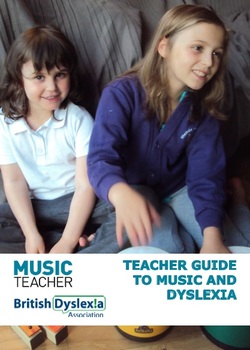 I recently came across this very helpful guide for studio teachers who have students with dyslexia. The guide gives info about what dyslexia is, how to develop positive teacher/student rapport, inclusion of multi-sensory teaching methods, what to do with challenges such as performing, sightreading, and memorising. A lot of the tips are handy for all types of teachers and so can help all music students (inclusive education). The guide also contains information about examination requirements and adjustments. This is a British guide, so their info is about UK-based examination boards. The AMEB provide similar adjustments for students with learning disabilities. Teacher Guide to Music and Dyslexia AMEB Special Needs Congrats to Lijie for full marks on her Year 11 composition. Great feedback. Well done Lijie!
Stuart Bowen has put together a film that is a must-see for all pianists. Stuart came over to film me (well, my fingers) playing the Chopin Revolutionary Etude. Have a look at http://woodyshortfilm.com/ - I'm dying to see it, couldn't make it to the official opening, so hopefully will see it down the track. It's won a few awards to date.
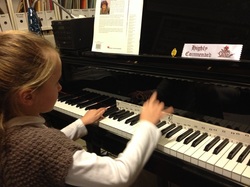 Time to proudly boast about some student achievements over the past term! Congrats Holly for 3rd place and HC in the St George Eisteddfod, as well as an HC in the Inner West Eisteddfod! Can you see her playing to her medals in the photo to the left? Congrats to Zoe (Year 11) for recently receiving full marks in her composition assignment. Congrats to Hayden for receiving 19.5 out of 20 for his HSC composition (trials). Good luck to all my HSC students, love your work! On February 18th, we're having a small workshop on composition for HSC music. Dr Peter Marshall, who's taught a fair few outstanding and successful composition students, will be leading the workshop. Start time - 7.30pm at my studio.
This letter has been recently doing the rounds on the piano pedagogy forums. Establishing an early supportive, working relationship with the student, the student's parent/s, and the teacher, can really ensure student success. Karen Berger's letter addresses issues that can arise along the way. Warning - the letter is blunt!
"Dear Piano Parents: You're probably getting mailings right now about fall activities for your kids. The soccer coach wants to know if you're doing traveling team, the Little League coach is scheduling practices, the dance teacher is putting her classes together. And you're wondering about piano lessons for little Johnny or Suzie." To read more of Karen Berger's letter, go to http://musicalresources.blogspot.com.au/2011/07/truth-about-piano-lessons.html?m=1 In my work as an examiner, I've heard a fair few performances of published piano arrangements, and I'm always surprised at how little is know about them. I've seen a fair few developing young musicians play really interesting piano arrangements of pop songs, jazz standards, orchestral works, film music and so on, but who have never heard the original versions.
What a wasted educational opportunity! Piano arrangements generally exist so that those pianists who are absolutely obsessed with non-piano pieces (such as a favourite film theme, or a well-known pop song) can play it to their heart's content. If this process is removed, what is the point of learning the arrangement? Working backwards from the arrangement allows the teacher to introduce the student to other repertoire and other instrumental combinations. Take for instance, all the numerous arrangements of 'Ode to Joy' - imagine playing the simplified piano versions without hearing some of Beethoven's exhilarating original work! Understanding and knowing the original version allows the pianist to think about voicing (eg, making the most of the melody that was originally sung), tonal colour (eg imagining the original brass sounds or the cantabile strings), and style (eg through listening to original jazz recordings of the arranged version). These considerations can then play into the student's understanding and interpretation possibilities of 'pure' pianistic repertoire. The recent Olympics have made us wonder how we could invest so much money in our athletes and receive so little return in the medal count. It hurts even more from the arts industry point of view - just read David Williamson's comments below:
http://m.smh.com.au/entertainment/they-kill-us-for-their-sport-williamson-laments-arts-funding-cuts-20121115-29ejt.html |
My BlogReflections/news on music, piano and music teaching, and anything else that pops up. Archives
October 2021
Categories
All
|
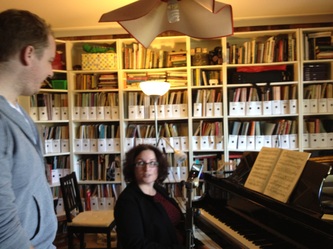
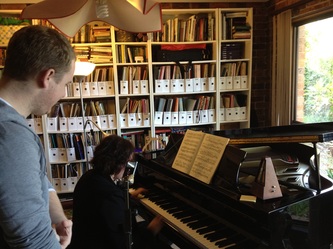
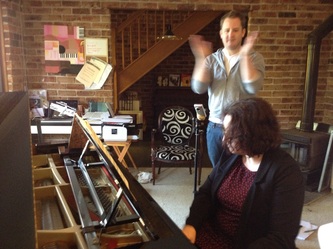
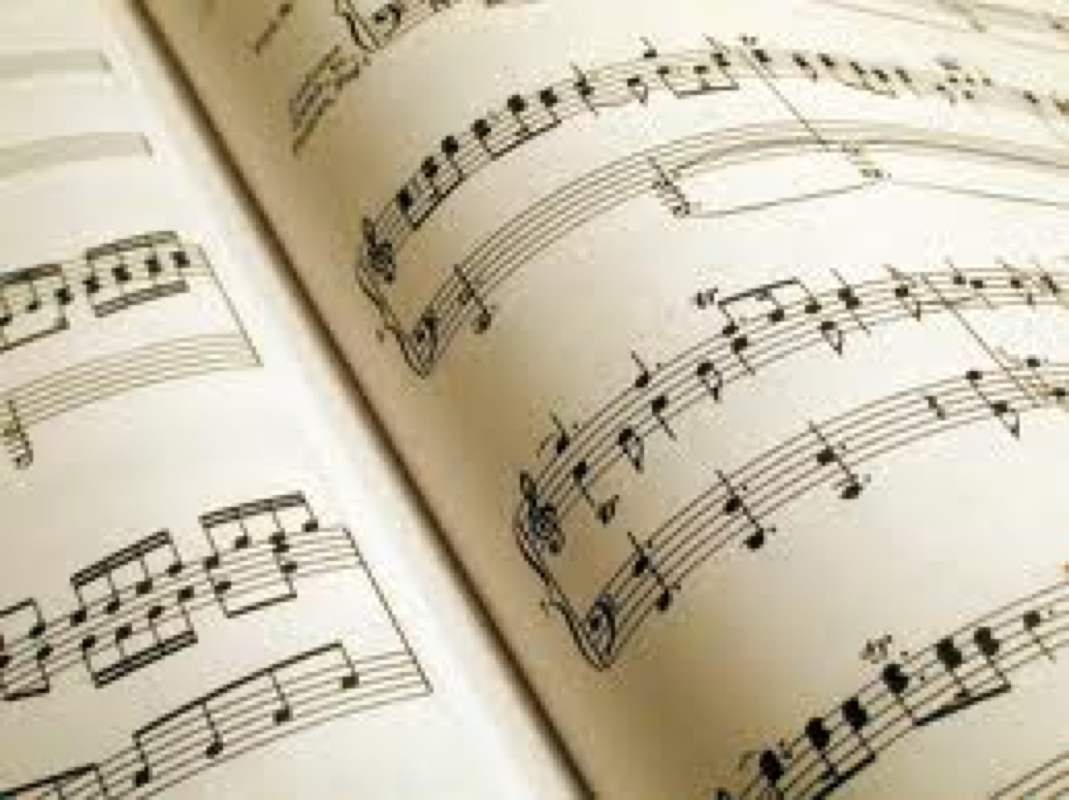
 RSS Feed
RSS Feed